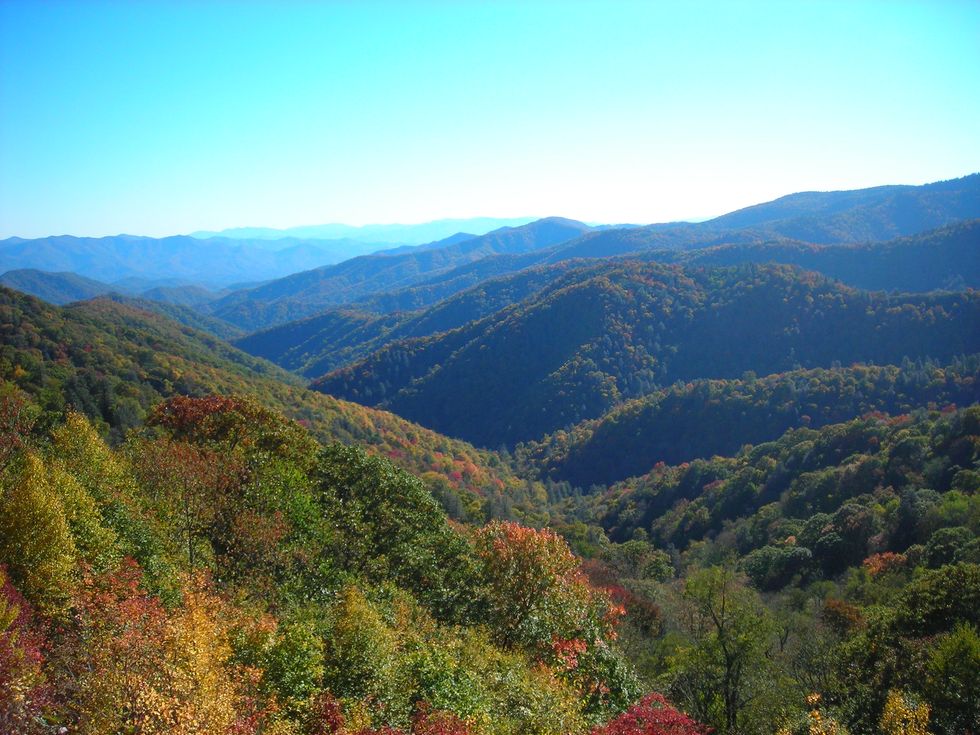The Appalachian Mountains go through a total of 13 states according to the federal government. Running from Southern New York to Northern Mississippi, the 13 states include all of West Virginia and parts of Alabama, Georgia, Kentucky, Maryland, Mississippi, New York, North Carolina, Ohio, Pennsylvania, South Carolina, Tennessee and Virginia. The region is a 205,000 square mile area that extends well over 1,000 miles. 42 percent of the population is rural compared to 20 percent of rural areas in the rest of the national population. There are 420 counties that provide homes to more than 25 million people. The Appalachian Mountains are full of history, being the oldest chain of mountains in North America.
Growing up in Appalachia is unlike growing up anywhere else in the world. Appalachia is a region that is often the focus of negative media and cruel, sadistic stereotypes. It is both sad and unfortunate that Appalachia has become a hot topic of remorseless jokes.
It is essential to remember that Appalachia is a region profuse in cultural, tradition and customs. Often Appalachia is considered to have a unique and separate culture compared to the rest of the country. Appalachia has a diverse group of people, people who are Native American, Irish, Scotch and English, along with the later descendants of immigrants that were German and Polish. Today the region is more diverse than ever. Overall the people are friendly, kind and helpful. Everyone waves and flashes a smile when passing each other. Appalachians take a while to trust newcomers, however with a world who so often choses to only show the negative, it is understandable.
Having spent the majority of my life in East Kentucky, in a little town called Pikeville, I have witnessed this culture first hand and have recognized the lessons I learned from living in Appalachia have stuck with me after I left the region.
My whole life I always knew the stereotypes that hungover my head because of where I am from but never gave them much thought. It is believed that Appalachia is "backwards" because the mountains kept the people of Appalachia isolated from the rest of the country. I am fortunate that I have had the opportunity to travel my whole life, and see more than just my little area of Appalachia. However, I can assure you that everywhere I traveled I was often judged by someone because of where my family was from, although we were not judging them. When you are someone who is constantly belittled due to stereotypes you learn that you have to know your self-worth, and you learn to not minimize others regardless of what might be spoken about you. The first time I can truly remember being offended was in Central Kentucky, at a softball showcase I was participating in one summer. The showcase had a moment when the athletes and parents could speak with any of the coaches who were at that event. A coach shook both my mothers hand and mine and then proceeded to look me in the eyes and tell me "You're really good, but you will never play for me because you are the product of your area." Comments similar to this became a normal occurrence once I began college. I took a linguistics class my sophomore year where the professor told us a story about a young lady in a previous class. The student had gone to speak with the professor, and he told her that she would never make anything out of herself because she sounded stupid. I have to ask you at this moment who actually sounds stupid? Surely, not the student. As I previously stated, Appalachia has a strong culture and part of that culture is to not scoff at anyone.
Appalachians are immersed with the nature that is around them. Home to eight national forests and six national parks, along with the Appalachian Trail, the area is not lacking in beauty, also being home to the Great Smoky Mountains and countless other state parks. Appalachia teaches you to see the beauty in simple things, to slow down to take these things in and appreciate what is around.
The dialect is unique. You will not hear an accent like it anywhere else. Appalachian dialect is different than a southern accent. This isolation from the mountains is theorized to be the cause of the the dialect in Appalachia, a language that is a blend of Scottish/Elizabethan English due to the pattern of migration done by the early settlers.
The area is full of art, crafts and traditional music. From watercolor paintings made with actual coal dust in the paint to beautiful wood work and breathtaking quilts. Festivals featuring the traditional music as a celebration of being Appalachia are not hard to find.
John Mur said "You are not in the mountains, the mountains are in you." This is true. Having left the area, without an intent to move back I carry my mountains and my culture with me in everything I do.
People from the mountains may catch a bad reputation but manage to be the most friendly, altruistic people that I have ever encountered. Any Appalachian would be willing to give the shirt off their back to a stranger and not expect anything in return. I am proud of my heritage, there is nowhere that I would rather be from and I will protect my culture no matter where life takes me.




















